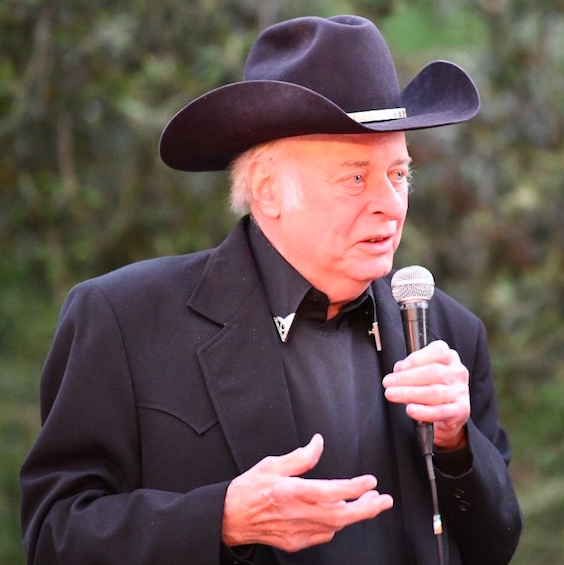BY JERRY STERNBERG
“Hey, Grandpa, did you grow up in Asheville? Where did you go to school?”
“Claxton, David Millard and Lee Edwards.”
“I know Claxton is still here, but I never heard of the other two.”
“Well, David Millard was on Oak Street near the First Baptist Church. It was torn down later, and they changed the name of Lee Edwards to Asheville High School.”
“What did they teach in these schools? Did you learn about American history? You know, things like the Wilmington massacre and Black Wall Street and Juneteenth?
“I’m sure you remember the ‘greatest generation.’ Did you learn that when Black vets returned home after World War II, many were deprived of a college education that was owed them under the GI Bill because the all-white colleges and universities wouldn’t accept them? Or that they were also prevented from taking advantage of the promised help with home loans because the banks were doing something I think was called redlining?
“I bet you were shocked to learn that many of these men who returned to their Southern homes were tortured or lynched when they demanded the same rights and privileges that white people enjoy. Some people claimed that even though these folks put their lives on the line fighting for our country, watched their comrades die in battle, and too often came home with grievous wounds, they were just too ‘uppity.’
“When you were growing up, did Black people have to sit at the back of the bus? Were there separate bathrooms and drinking fountains for Blacks and whites? Is it true that at the Plaza Theatre, Blacks could only sit in the balcony?
“We even learned that Black people couldn’t go to Mission Hospital. No matter how sick they were, they had to go to a little clinic on Biltmore Avenue. They also couldn’t live in the white parts of town but were consigned to Shiloh or the Depot/Southside area, where they would be with ‘their own kind.’
“We were also surprised to find out that they were often harassed or turned away when they went to the polls to vote. Why was this, Grandpa?”
“It was the law.”
“Why was it the law?”
“People thought Blacks were dirty, diseased and dumb and that they posed a threat to whites.”
“But Grandpa, I remember you talking about Lily Mae, the Black lady that your family hired as a housemaid and nanny. You told us how much you and your brothers and sisters loved her. You said she cooked and cleaned the house for you all and how she still found time to play with you and care for you when you were sick, to scold you when you didn’t do your homework or your chores, and even to hold you and console you when you felt sad. You said all of you tried very hard not to displease her because you loved and respected her so much. So was Lily Mae dirty, diseased and dumb?”
“There were some good ones.”
“Grandpa, you seem annoyed that I’m asking you about this. Were there Black kids in your school?”
“No.”
“Did you ever play with any Black children? I think you said that Lily Mae would sometimes bring her children over to your house to play. I remember you particularly liked her oldest son. I even remember his name: Roosevelt. You said he was a little older than you but that he taught you to shoot baskets and all about the ways of the woods. You said he went away to the war, and when he came back, he somehow managed to get into college on the GI Bill and became a very successful banker.
“I remember once you took us grandkids to meet him and said he was still one of your best friends. You also told us that one time when you were laid off from your job, he got you a loan that saved you from losing your house.
“Grandpa, was Roosevelt dirty, diseased and dumb?”
“That’s enough!”
“Why are you getting so angry and red in the face, Grandpa?”
“Never mind that. Where are you getting all this s–t?”
“Why are you using bad words, Grandpa? They’re just trying to teach us the truth about America and our local history. They even discussed the visits by Paul Robeson and Lena Horne, internationally known artists who came to Asheville to perform and weren’t allowed to stay at the white hotels, including the Battery Park and the Grove Park Inn, or to be served in any of the white restaurants.
“They’re also teaching us about the terrible treatment our local Cherokee Indians received. Did you know, Grandpa, that when gold was discovered in Georgia in 1828, white men confiscated Cherokee land and forced thousands of them to march all the way to Oklahoma, and many died along the way?
“Did you learn about all this in your school history lessons, Grandpa? You always said we should always tell the truth, and you told us to ask questions anytime we needed to know something.
“Where are you going, Grandpa? Wait, please don’t leave. I have more questions…
“Grandpa!!!”
An anthology of columns by Asheville native Jerry Sternberg, a longtime observer of the local scene, is available from Pisgah Legal Services for a $25 suggested donation. To order your copy of The Gospel According to Jerry: 90th Birthday Edition, visit pisgahlegal.org/jerry, or send a check to: PLS, P.O. Box 2276, Asheville, NC, 28802. All proceeds will support the nonprofit’s work.




Well I guess everything well be about BLM from here til eternity. So sad.
Thanks, Jerry, for your wisdom. My life is richer because of your writing. Keep it up!